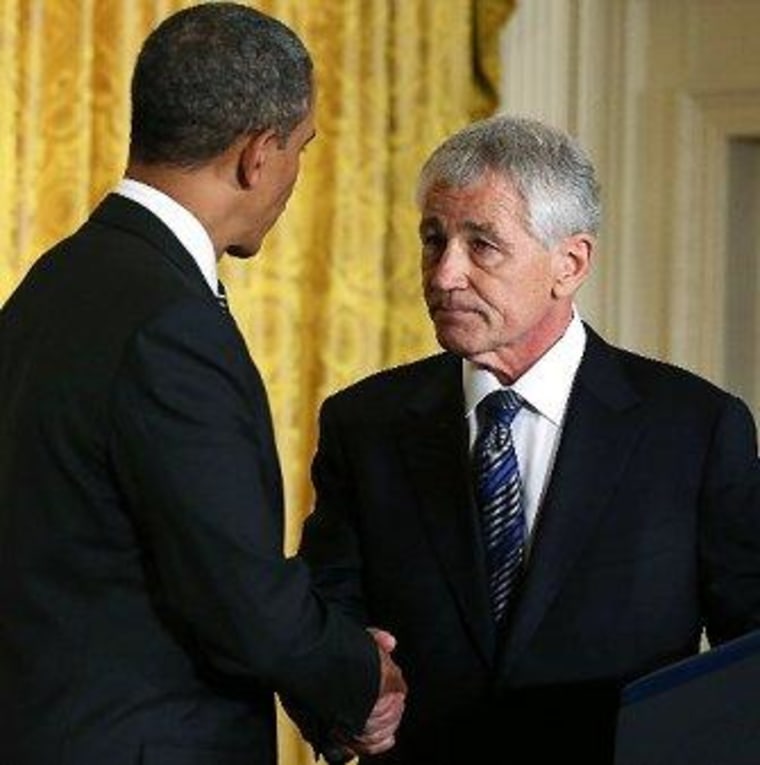The White House's statement after the Senate Republican minority blocked a vote on Chuck Hagel's Defense Secretary nomination emphasized a point that some forget: we're still at war.
"We have 66,000 men and women deployed in Afghanistan, and we need our new Secretary of Defense to be a part of significant decisions about how we bring that war to a responsible end."Next week in Brussels, the United States will meet with our allies to talk about the transition in Afghanistan at the NATO Defense Ministerial, and our next Secretary of Defense should be there. With questions about the sequester looming over the Pentagon, our Secretary of Defense should be in place. For the sake of national security, it's time to stop playing politics with our Department of Defense, and to move beyond the distractions and delay. Allow this war hero an up or down vote, and let our troops have the Secretary of Defense they deserve."
In American history, a Senate minority had never blocked an up-or-down vote on a cabinet nominee -- until yesterday. Republicans broke new obstructionist ground by filibustering a Defense Secretary nominee during a war.
I emphasize this because I remember the Bush/Cheney era pretty well. The winds have shifted in the years since, but I'd like to point out, for those who've forgotten, what it was like at the time.
Americans were told pretty consistently for seven years that to publicly question the Commander in Chief or stand in the way of his national security agenda was offensive, if not outrageous. With wars ongoing, troops in harm's way, and terrorists targeting the United States homeland, critics of the Bush/Cheney administration were told to shut up and get in line -- because to question the president, when al Qaeda might hear you, was to put America in danger.
I mean that literally. In February 2007, almost exactly six years ago, Ed Koch wrote a column defending George W. Bush, insisting that criticism of the White House -- not obstructing his national security agenda, just saying unkind things -- could undermine our security: "Democrats and some Republicans in Congress are seeking to humble, embarrass and, if they can, destroy the President and the prestige of his position as the Commander-in-Chief who is responsible for the safety of our military forces and the nation's defenses. By doing so, they are adding to the dangers that face our nation."
Throughout the Bush/Cheney era, this was as common as the sunrise. Dissent was equated with disloyalty. Prominent conservatives would casually throw around words like "treason," "traitor," and "fifth columnists." To give the appearance to the world that Americans were divided at a time of war was, we were told, to help the enemy.
That was then. Their perspective seemed to change on Jan. 20, 2009.
I know the "if a Democrat did this..." comparison can get tiresome, and I try to avoid it. But try to imagine it's 2005, Bush/Cheney just won a second term, and the president nominates a decorated war hero to lead the Pentagon. Then imagine Senate Democrats, for the first time in American history, blocking a vote on the nomination. Then imagine the Senate Democratic ringleader bragging on national television that Democrats did so in part because the nominee hurt their feelings. Then imagine liberal activists cheering them on.
Do you realize how big a scandal this would be? Do you think it'd even be possible to hear about anything else?
